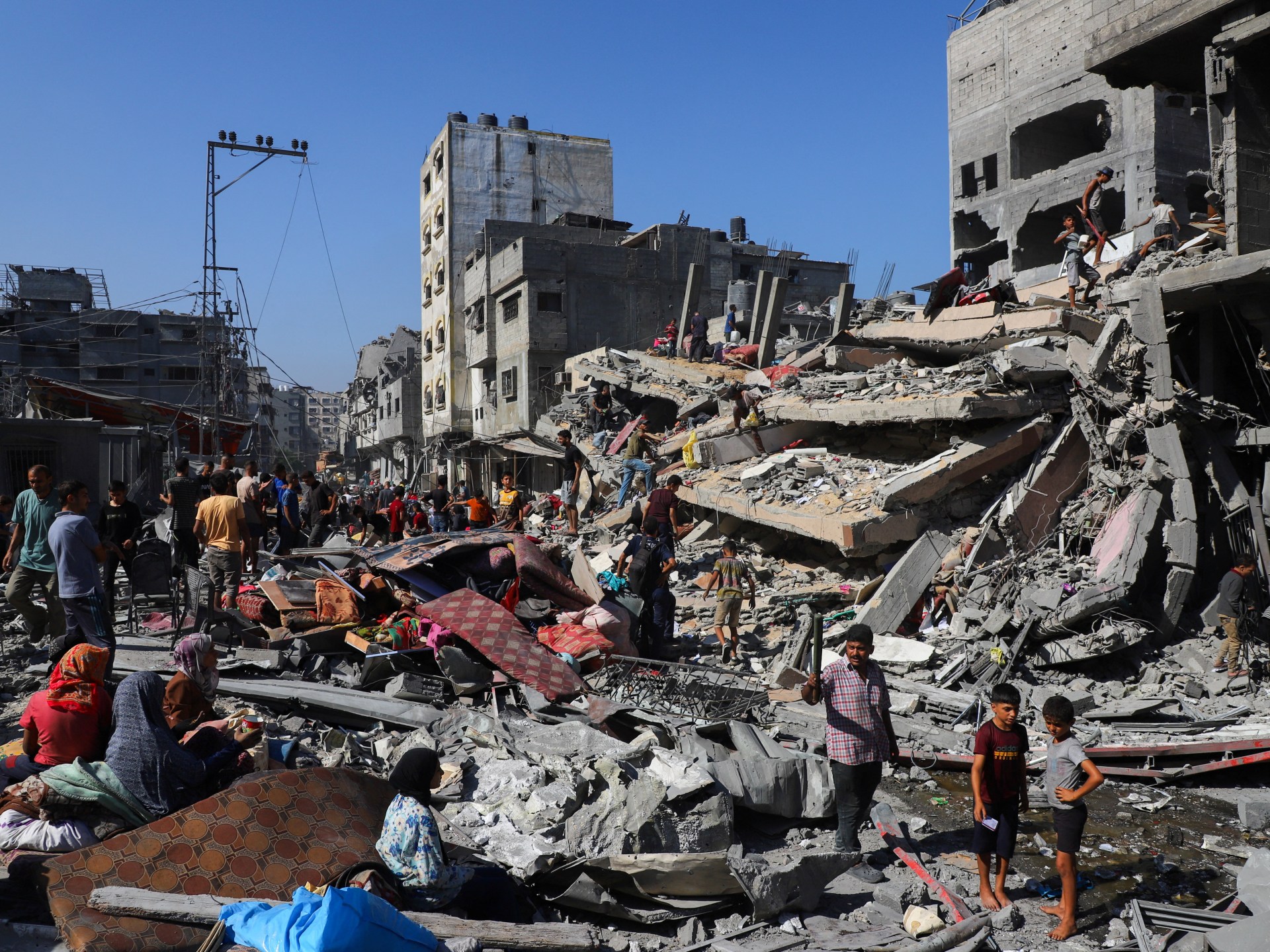“Bolsonaro may actually be a convenient excuse for Trump to do what he would already be willing to do [in Brazil].”
The US “has beef with Brazil” on more than just Bolsonaro issue
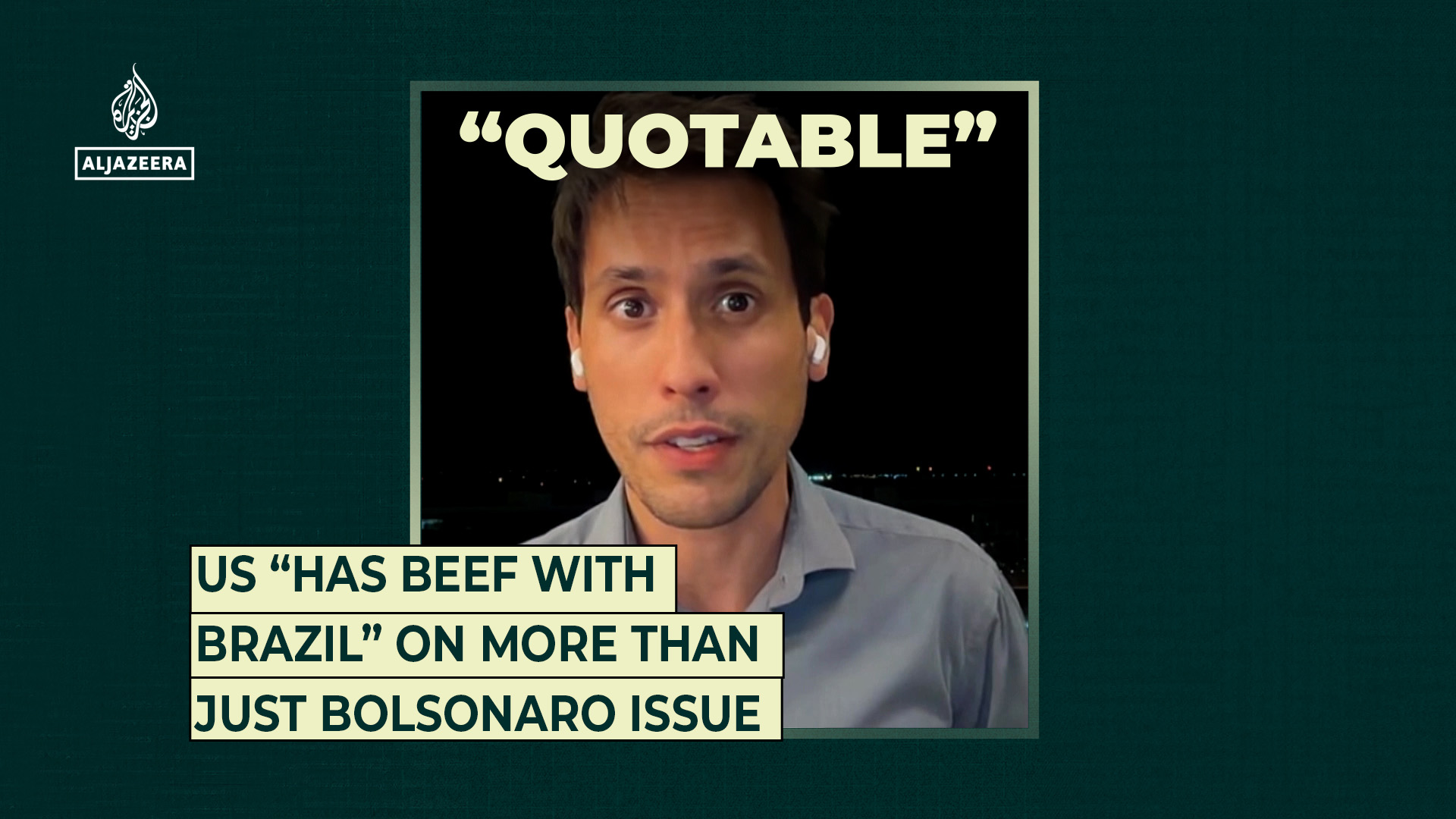

“Bolsonaro may actually be a convenient excuse for Trump to do what he would already be willing to do [in Brazil].”
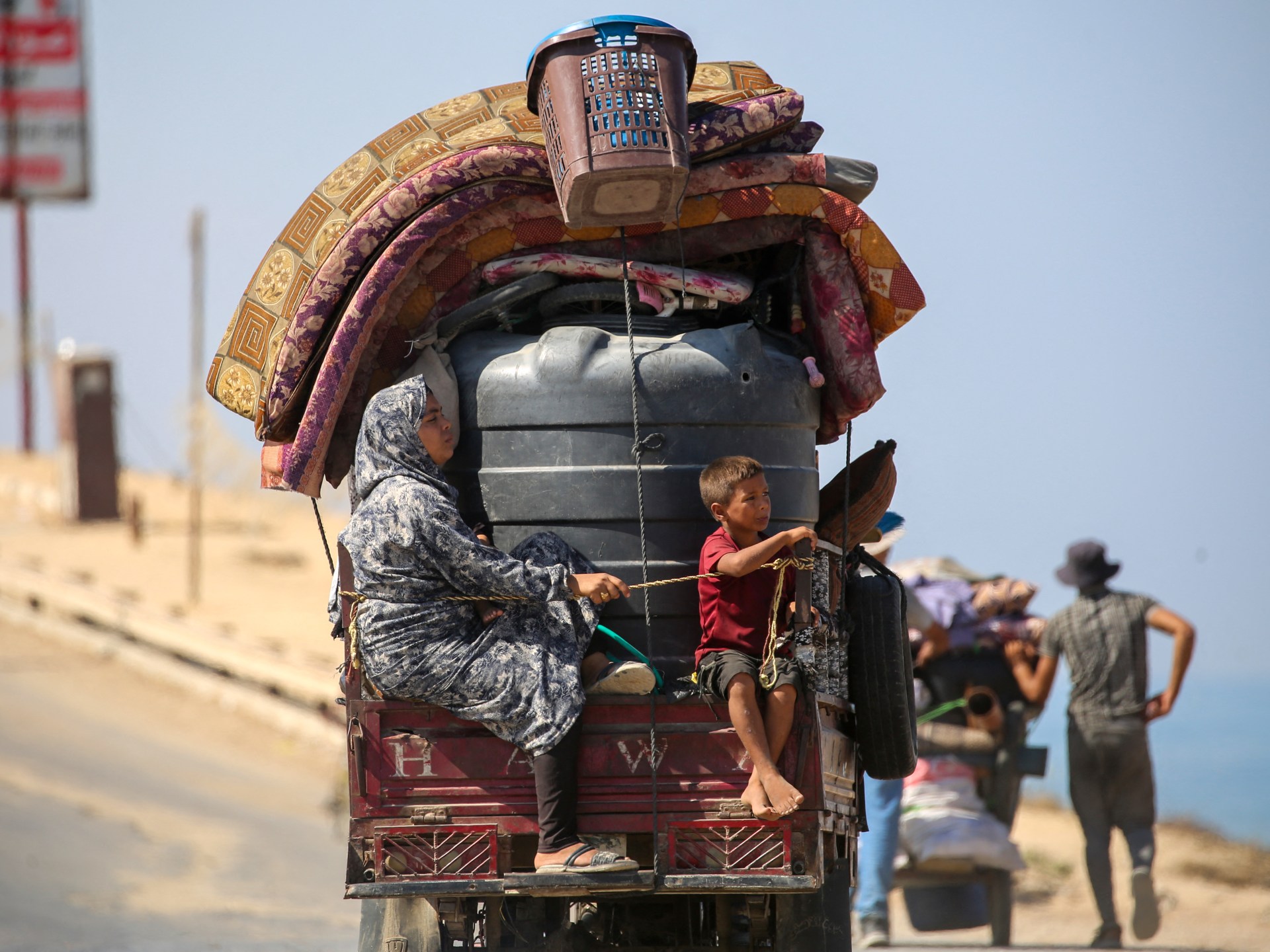
We thought returning home would end the nightmare.
After months of fleeing bombardment, sleeping in tents, schools, or under makeshift nylon sheets, many families finally walked back to their homes in northern Gaza during the fragile ceasefire in January 2025. The roads were lined with rubble. Our houses were broken shells, neighbourhoods unrecognisable. Yet we carried a fragile hope: that by stepping back onto our land, even among ruins, we were reclaiming our lives.
But as soon as we returned, the headlines followed us. Terms like “mass relocations”, “humanitarian cities,” and “population transfers” began to appear, suggesting that even after everything we had endured, our next destination might not be what remains of our homes, but military-controlled camps in the far south of Gaza, where the army had swept through and wiped out entire residential neighbourhoods, turning them into barren, flattened deserts.
For many outside Gaza, such reports read as distant political debates. For us, they land like threats. Each new statement feels like a draft of our next exile. The idea that the Israeli military might herd hundreds of thousands of us is terrifying precisely because we know what those “cities” would really be: overcrowded compounds, controlled checkpoints, food and water distribution under armed watch — if we are lucky enough to receive them — no freedom of movement, no guarantee of ever leaving.
Families who have just swept dust from their broken floors now whisper about whether they should keep bags half-packed, ready to flee once again. Children, who have barely adjusted to sleeping in their own beds after months away, overhear the word “relocation” and start crying. We all know what it means: another round of humiliation, another erasure of what little normal life we are trying to piece together.
Meanwhile, life in northern Gaza is already unbearably hard. Water and electricity are scarce. Food is overpriced and often unavailable. Families live among rubble, patching holes with nylon sheets. Yet even in these conditions, people cling to the dignity of being on their own land.
But that fragile dignity is overshadowed by the possibility that it could all vanish. Every attempt to rebuild — a repaired roof, a replanted garden, a reopened shop — feels provisional. Parents ask themselves: Should we invest in repairing the house if we may be forced out again? Students sit with books by candlelight yet wonder: What school will I graduate from if we are moved tomorrow? Every moment of normality feels as though it could be interrupted by soldiers demanding we leave.
What would it mean to live in these camps? The very thought keeps us awake at night.
We picture long queues for food, dependent on ration cards for every meal. We imagine tents lined in rows, stripped of privacy, where families huddle with strangers and women fear for safety in overcrowded conditions. We imagine soldiers controlling the gates, deciding who enters and who leaves, monitoring our lives with cameras and watchtowers.
For children, it would mean growing up without classrooms they know, without streets that carry their memories. Their “playground” would be a fenced dirt lot. For young men and women, it would mean the end of any chance at education or work; for, inside camps, life shrinks to survival. For the elderly, it would mean dying away from what remains of the houses and trees they planted with their own hands.
These are not abstract fears; they match what has already been documented in displacement zones and what legal experts predict. Analysts writing for JURIST and the Council on Foreign Relations note that once inside such camps, Palestinians would be unable to leave freely, their movements tightly monitored, their lives dependent on aid distribution. The United Nations agencies and NGOs have also warned that further mass relocations under military oversight could constitute forcible transfer.
The danger of these proposals is not only the physical hardship but the permanence they suggest. History has taught us that once people are forced into camps, “temporary” becomes long-term. A tent pitched “for now” becomes a marker of exile for decades.
That is why the fear today feels heavier than even the destruction we have endured. Bombs destroy cities, but forced relocation destroys roots. If we are pushed into these camps, it will not just be the loss of homes; it will be the loss of any claim to return.
Satellite imagery already confirms this danger is not theoretical. In Rafah, Al Jazeera’s Sanad agency documented the destruction of nearly 30,000 buildings between April and July 2025, providing evidence of land-clearing consistent with preparations for such a “humanitarian city”.
What makes this looming threat unbearable is the trajectory of our lives. We have already been pushed from hard to harder: from homes to schools, from schools to tents, from tents back to broken houses. And now, the plan being whispered is the hardest yet — military-run shelters that strip us of autonomy altogether.
What we really fear is not paranoia. It is a recurring project to erase us from our land. Some may wonder why the idea of relocation is more terrifying than the bombs we have survived. The reason is simple: bombs destroy walls, steal lives, but they do not sever us from our land. Forced relocation uproots us forever.
To lose a home is devastating. To lose the possibility of return is annihilating. That is why families whisper about the proposals with trembling voices. Because deep down, we know: once we are herded there, we may never see home again.
The world must see through the language being used. The term “humanitarian” is a mask. What is being proposed is not relief but imprisonment. What is being prepared is not shelter but a system of control designed to make displacement permanent.
If you read those headlines, do not imagine children playing safely in neat new towns. Imagine them staring through barbed wire, asking why they cannot go home. Imagine mothers queueing for a ration of flour under the eyes of soldiers. Imagine fathers pacing at night, unable to protect their families from the indignity of being treated as captives.
For us in Gaza, the worst may still be ahead. We returned home believing the nightmare was beginning to end. Instead, we live in the shadow of a new displacement, one that could erase even the ruins we call ours. This is the horror that defines our present: not only surviving bombardment, but living every day with the dread that the next chapter is already written, that the hardest chapter is still to come.
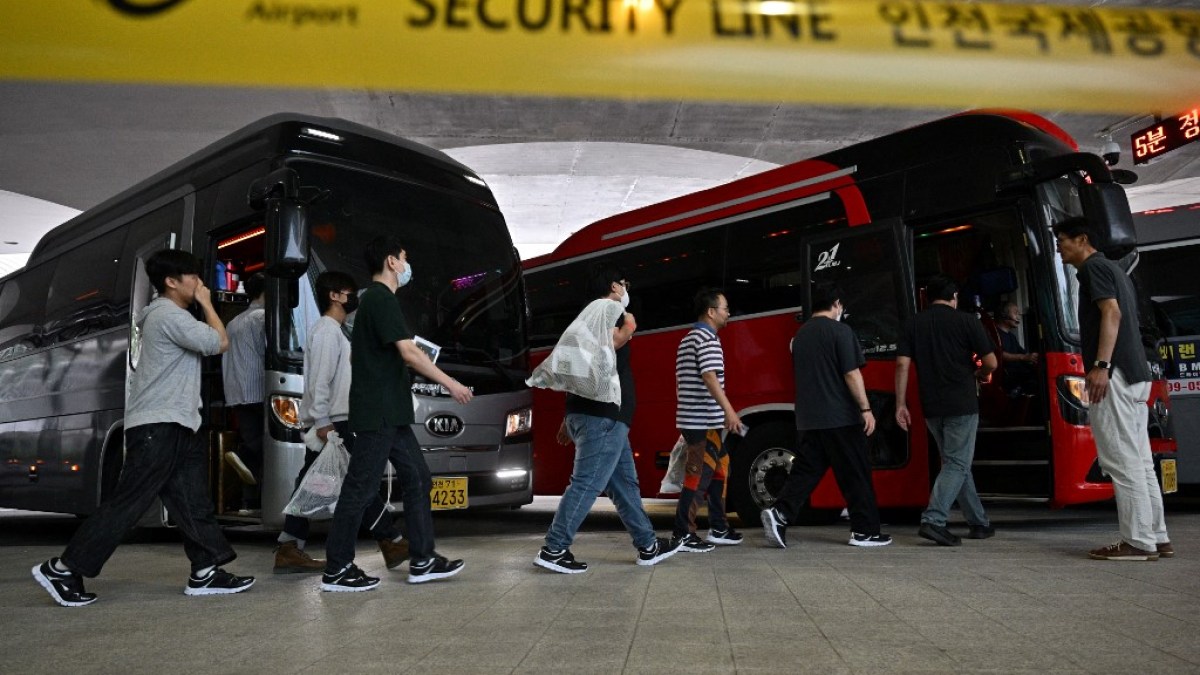
A chartered flight carrying hundreds of South Korean workers arrested in a major United States immigration raid has landed in Incheon, ending a weeklong saga that rattled Seoul and cast a dark shadow over its ties with key ally Washington.
Television footage showed a Korean Air Boeing 747-8I touching down at Incheon International Airport on Friday with more than 310 passengers who had been arrested in the US state of Georgia.
list of 3 itemsend of list
The workers made up the bulk of the 475 people swept up during a raid at a Hyundai-LG battery plant construction site – the largest single-site immigration operation since US President Donald Trump resumed office and pledged to intensify crackdowns.
“Everything at Atlanta went smoothly,” a South Korean Foreign Ministry official told the AFP news agency, confirming the flight left as scheduled.
Images of workers in handcuffs and chains during the arrests caused deep outrage in South Korea, where anger has spread over what many see as a betrayal of an ally.
At the airport, protesters held placards mocking Trump in an ICE uniform and accusing Washington of luring investment only to criminalise workers. One man’s sign read: “You told us to invest, only to arrest us! Is this how you treat an ally?”
President Lee Jae-mMyung called the raid “bewildering” and warned it could deter future investment. He said Seoul was pressing Washington “to ensure that visa issuance for investment-related purposes operates normally”.
Al Jazeera’s Jack Barton, reporting from Incheon airport, said US officials had insisted “right up until the last moment that they were going to be deported and that there would be restrictions … on re-entry for at least the next five years”.
But, Barton noted, “the South Korean government was able to negotiate with the Trump administration … and they were allowed in the end to [make] a voluntary return, and … there will be no visa restrictions or re-entry restrictions.”
Barton said the raid had caused rare political unity in South Korea. “This is the only issue I’ve seen them really sort of on the same page,” he reported, with politicians from across the spectrum condemning images of workers “having their ankles and hands chained together, and then doing that sort of perp walk onto the bus”.
He added that polls showed at least 60 percent of South Koreans disapproved of the raid, warning the fallout could damage future investments.
Industry executives said the arrests would delay construction at the $4.3bn Georgia facility.
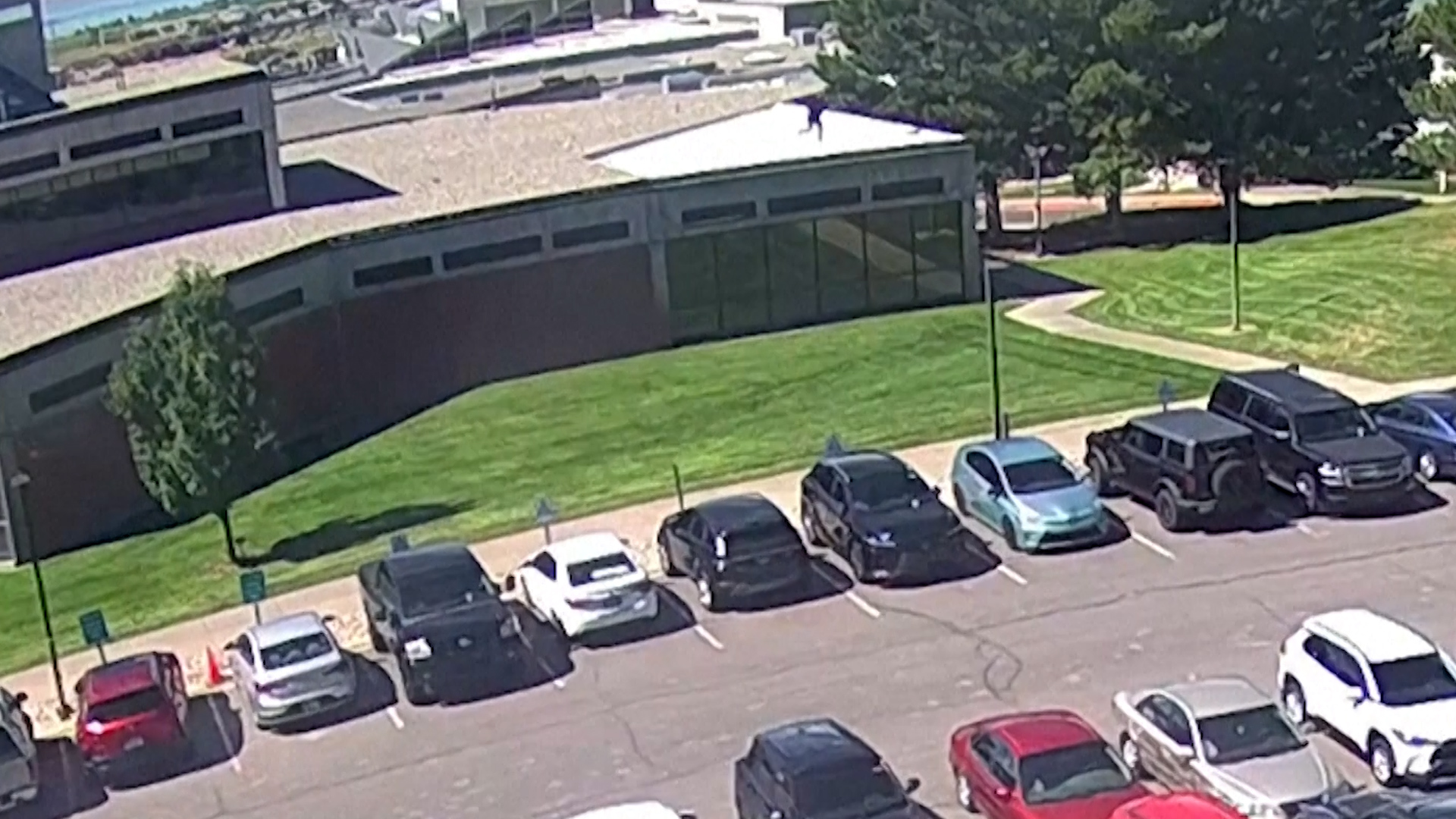
The FBI released CCTV video on Thursday showing what they said was the moment the suspect in the shooting of US conservative activist Charlie Kirk escaped. Authorities have admitted that officials have “no idea” whether Kirk’s suspected killer is still in Utah.

Rescuers have been searching in rivers and the rubble of devastated villages for survivors of deadly flash floods that struck two provinces in Indonesia earlier this week, killing at least 23 people and leaving five missing, as waters began to recede.
Torrential rains for the last four days caused flooding and landslides in nine cities and districts of the tourist island of Bali and in East Nusa Tenggara province. Rising rivers submerged at least 120 neighbourhoods and resulted in a dozen landslides in several places, National Disaster Mitigation Agency spokesperson Abdul Muhari said in a statement on Thursday, with the higher death toll reported by officials on Friday.
list of 3 itemsend of list
Muhari said rescuers had retrieved seven more bodies as floods receded in Bali, bringing the death toll from floods on the island to 16. Rescue workers are still searching for a missing resident, he added.
A weeklong state of emergency was declared to mobilise additional resources.
As river levels returned to close to normal on Thursday, people in Denpasar, Bali’s capital, left crammed emergency shelters.
Authorities took advantage of the receding waters to begin clearing mud and removing piles of wet rubbish from the streets, while electricity was restored to tens of thousands of residences and businesses.
Indonesia is prone to flooding and landslides during the rainy season, which typically peaks between November and March. The recent rainfall is considered unusually heavy for September.
Suharyanto, head of the National Disaster Mitigation Agency, told a news conference late Wednesday that the threat of flooding in Bali is over.
He said up to 600 rescue workers, police and soldiers have been deployed since Wednesday to search for people still reported missing in Bali, as the floods have also damaged roads, bridges and other infrastructure.
By late Thursday, about 552 people remained crammed in government shelters in several districts in Bali, the agency said.
“The Indonesian Disaster Mitigation Agency blamed the heavy downpour, the landscape of Bali and tidal activity as the cause of the great flood,” said Al Jazeera’s Valdiya Barapotri, reporting from Badung Regency in Denpasar.
“However, Balinese see that there is more to the issue; the rapid growth overcharged by overtourism and mismanagement of urban planning and waste in Bali are seen as the root of the cause,” said Barapotri, standing before “a ruin of three shops that doubled as homes that collapsed in the flood”, resulting in the deaths of four people.
Barapotri added that, “Rivers and ricefields in Bali [have been] replaced by concrete, therefore Bali lost a lot of water shed and recharge area, so when the rain falls, which happens quite often in this tropical island, Bali is more prone to flooding.”
In East Nusa Tenggara province, dozens of rescuers were searching through a river around the remote village of Mauponggo in Hagekeo district, where floods left tonnes of mud, rocks and trees.
Rescuers on Thursday found the body of a 14-month-old child, one of two toddlers whom rescuers had been searching for, said Muhari. Four other bodies were pulled out of floodwaters or mud on Wednesday.
Local Disaster Mitigation Agency head Agustinus Pone said the severe weather and rugged terrain that hampered rescue efforts were exacerbated by the disruption of electricity, clean water, and telecommunications networks in 18 villages by flash floods.
